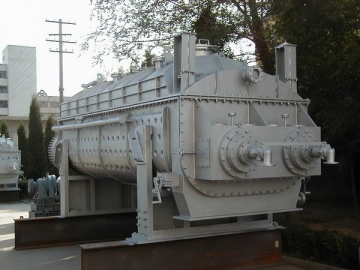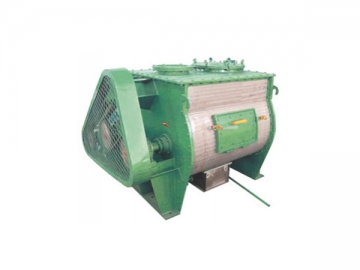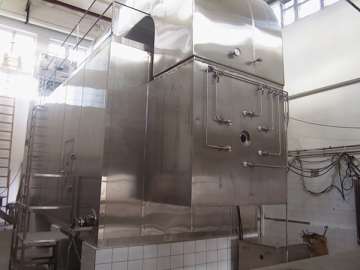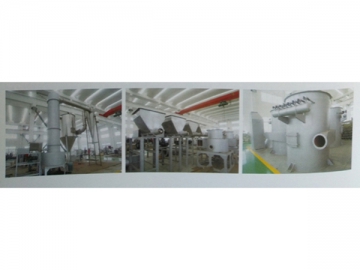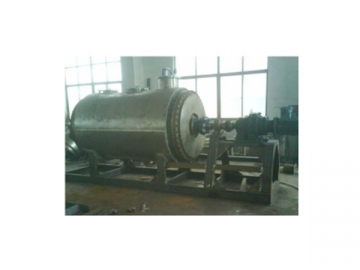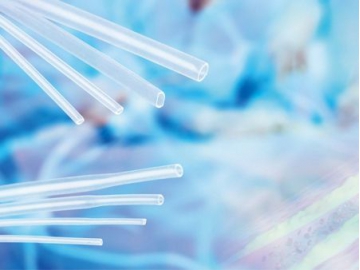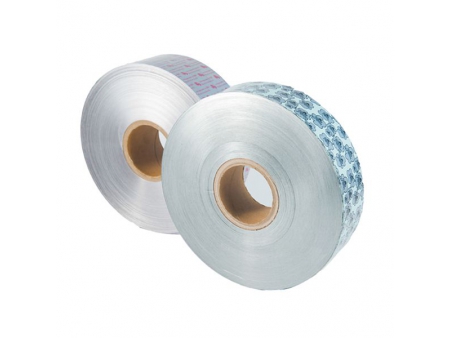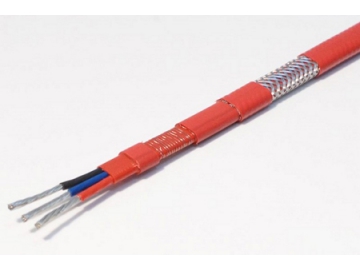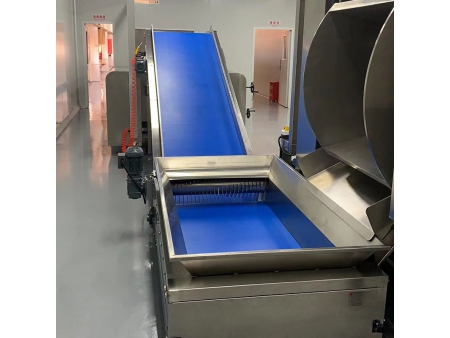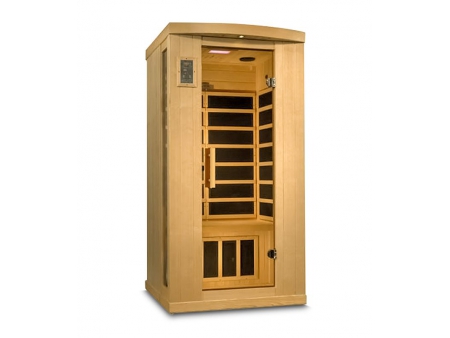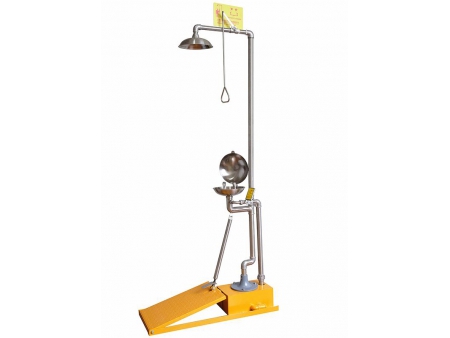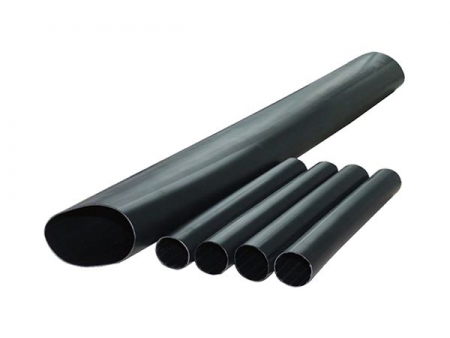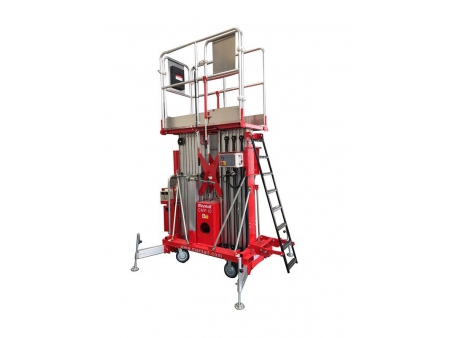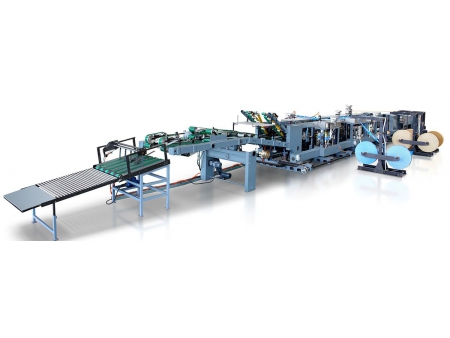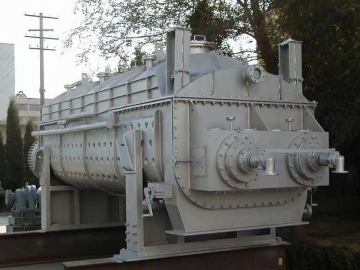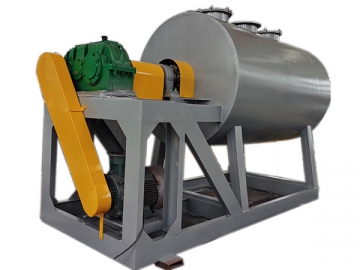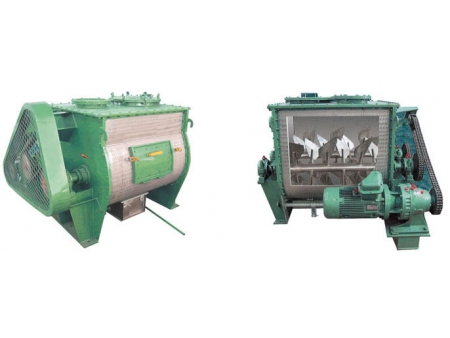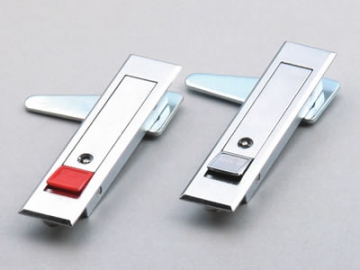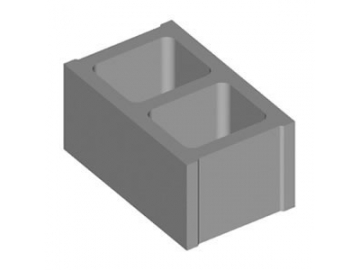Hollow Paddle Dryer
Description:
Applicable for drying or cooling of paste, particle, powder and slurry state of material, perform the process of drying, cooling, heating, sterilizing, reacting and combustion under low temperature. The special stirring and heating transferring blade, makes high heat transferring efficiency, and provide self-cleaning function. The special chock shaped stirring and heat transferring blade has high heating efficiency and self-cleaning function of the heating transferring surface.
Hollow wedge-shaped blades are concentrated on the hollow shaft. Heat media flow through the blade from the hollow shaft. The heat transferring area in the effective volume is very high. The temperature range of heating media is -40 ℃ to 320 ℃ . It might be steam, or liquid state, such as steam, thermal oil etc. Indirect heating, there's no heat carried out by air. All heat is utilized for to drying the material except the lost of heat insulation layers. The surface of wedge-shaped blade has self-cleaning function. The relative movements of the product particles and the wedge-shaped surface effects cleaning action, this can clean the material attached to the wedge-shaped surface, so to keep the cleanliness of heat transferring surface during working. The shell of hollow blade dryer is Ω-shaped, and 2 or 4 pieces of hollow stirring shaft are usually equipped in the shell. To avoid any leakage of material or to collect material solvent vapor, there is sealed terminal cover and top cover with the shell. The discharge port is provided with a blocking plate to ensure the material level height, so that the heat transfer surface is fully covered by the material and fully display the surface contribution .The heat transferring media flow through the rotation connector, jacket's shell and hollow stirring shaft. To ensure best transfer effect, the hollow stirring shaft adopts different interior structure in accordance with different heating media.
Work Principle:
The heat transfer surfaces of hollow paddle dryer included paddle,stirring shaft, and wall surface. And the heat transfer area of paddle is the great majority, so the structure of the equipment is compact and heat transfer area of unit volume is high. Stirring and mixing make the material turnover tempestuously so that the material can get high heat transfer coefficient, the occupied area and space is small and the plant capital cost is saved.Because the structure of the paddle is special, during the during period, material will be extruded and loosed, drying strengthened. Loading ratio of drying chamber is high, it can be 80~90%, drying time can be regulated from a few minutes to a few hours by regulating the feeding speed, the rotary speed of the stirring shaft and the loading ratio. And from feeding port to discharging port the movement of material is basically piston motion. Its residence time distribution is narrow, so the moisture of product is uniform. The paddle on the stirring shaft has a certain axial angle, so it can dry material continuously.
Structure of Equipment:
Taking the double-shaft type for example to introduce the structure (paddle dryer include single shaft, double shaft and four-shafts type). It consists of W-shaped shell with jacket, upper cover,two hollow shafts with paddles,two end covers, swivel joint, flexible metal tubing transmission mechanism that includes gears and chain wheel and etc.
The cores of the equipment are the two hollow shafts and the hollow paddles welded on the shafts. The shape of the paddle is wedge-shape hollow hemicycle, inside it can be input heating medium. Except the stirring function, it is also the heat transfer device.Two main heat transfer surfaces of the paddles are slope surface.When material contacts with the slope surface, granules will slip away from the slope surface with the rotation of the paddle. It can enable the heat transfer is renewed continuously, so the heat transfer is strengthened. At the triangle bottom of paddle there is scraper blade, it can sweep the material that deposits at the bottom, so it can avoid the dead corner.
There are some equipments for the distribution of the paddle and the sizes of each part.And at the feeding area, drying area and discharging area,there are not only paddles, but also complementary unit, it can ensure the machine works stably, and dry uniformly. More over, residence time can be regulated.
The following sketch can be replaced by the photo which is shown in English and Chinese.
Application:
Paddle dryer has been successfully used in food, chemical, petrochemical, dye, industrial sludge, etc. The characteristics of heat transfer, cooling, stirring enable the equipment to accomplish the following unit operations: calcination (low temperature), cooling, drying (solvent recovery), heating (melting), reaction and sterilization. Mixing blades, at the same time, are heat transfer surfaces, and this makes the heat transfer area in Unit volume increases, shorten the processing time. Wedge blade acts not only heat transfer surface but also possesses self-cleaning function. Compression - expansion mixing function makes the material be mixed even. Material is made to move along the axial as "piston-flow " , and in axial interval, material temperature, humidity and mixedness gradient is very small.
1. Thermal conductive oil is applied as heating medium, the paddle dryer accomplish low temperature calcination. Such as: of dihydrate calcium sulphate (CaSO4 2 H2O), calcined into dihydrate calcium sulphate with 1/2 H2O (Ca SO4. 1/2 H2O). Sodium bicarbonate (NaHCO3) is calcined into soda ash (Na2 CO3), etc.
2. With the cooling medium, such as water, cooling brine etc. Pumped in, the Paddle dryer can be used for cooling. Such as: paddle alkali cooler used in sodium carbonate industry has replaced old-fashioned air-cooling alkali cooler, saving energy and end gas treatment device, reducing the operation cost. It also can be used for cooling titanium dioxide, ferro-nickel powder and various kinds of powder and granular materials. From 1000 ℃, on a single machine material can be cooled to less than 40 ℃.
3. The main functions of the dryer: without using heating air, it can make solvent recovery, energy consumption and environment control in an tractable or manageable ideal condition. It is particularly adapted to the materials that need to recover solvent,thermal sensitive material which is flammable and easy to oxidize. It has been widely used in fine chemical industry, petrochemical industry and dye industry.
4. In the axial interval, the uniformity of temperature, humidity and mixedness, enables the equipment to be used for heating or melting, or reaction of some solid materials. It has been successfully used in compound fertilizer and the modified starch industries. Blade dryer can be used for sterilization process for food and flour. Large heating area in the Unit effective volume can soon heat the material to the sterilization temperature, avoiding the material quality change due to long time heating..
Scope for Applied Materials:
Petrochemical industry: polyolefin powder, polycarbonate resin, high and low density polyethylene, linear low density polyethylene, polyacetal particles, nylon 6, nylon 66, nylon 12, cellulose acetate fiber, PPS, allyl resin, engineering plastics, PVC, polyvinyl alcohol, polystyrene, polypropylene, polyester, poly formaldehyde and styrene - acrylonitrile copolymer and ethylene - propylene copolymerization.
Environmental protection industry: PTA sewage sludge, electroplating sludge water, boiler soot, pharmaceutical waste, sugar mill waste residues, gourmet powder factory waste residue, coal fly ash.
Feed industry: soy sauce residue (offscum), bone base(matrix) feed, distiller’s grains,heels of foodstuff, apple residue, orange peel (skin), soybean meal, chicken bone feed, fish meal, feed additives, biological sludge.
Foodstuff industry: starch, cocoa bean,niblet.
Chemical industry: Sodium Carbonate, NPK Compound fertilizer, kaolin, bentonite, white carbon black, conductex, phosphogypsum, oxidation sodium floride, lime nitrade, magnesium carbonate, sodium cyanide, calmogstrin, barium sulfate, annaline, calcium carbonate, dyestuff, molecular sieve, saponin.
Features:
1. The heat consumption of paddle dryer is low: No heat carried out by the air because of indirect heating; there's no heat insulation layer with the exterior wall of the dryer. It consumes 1.2 kg of steam to evaporate 1kg of water for to drying slurry state of material.
2. Low cost to invest on blade dryer: the Unit effective volume has a large heat transfer surface, so the processing time is shortened. Equipment size is reduced, as would greatly reduce the building area and building space.
3. The range of material to be processed is wide: Heat sensitive material and the materials to be processed under high temperature might be processed with different heating media. The normal media are: steam, thermal oil, hot water and chill water. It might be continuous or batch operation, widely used in many areas.
4. The pollution is less: Without applying or air entrainment, very few powder is entrained, thus the less material is lost. The solvent evaporated is very few, it easy to be processed. For the material that might cause pollution or the solvent to be recovered, it might adopt sealed circulation.
5. The operation cost is low: 1hour/day.operator is enough for normal operation. Low stirring speed and reasonable structure, the worn amount is few, and the maintenance fee is low.
6. Steady operation: The material particles fully contact heat transferring surface, because of the special compressing and swell-stirring effect of the chock shaped blade. The gradient (or difference)of the temperature, humidity and mixedness are very small in the different axial area, so to ensure the stability of process.
7. Heat indirectly, material can not be polluted.
8. Rotary speed of paddle shaft is low, it will not destroy the shape and property of the product.
For detailed technical parameter for KJG series hollow paddle dryer, please refer to attachment herebelow.
